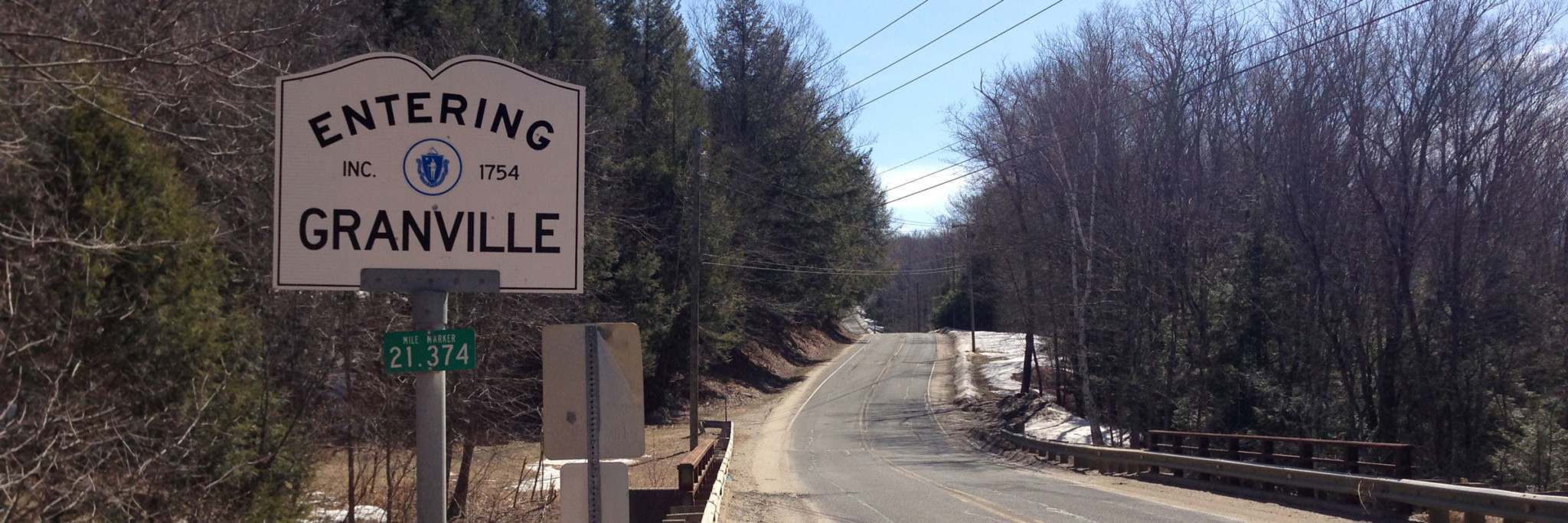There’s not much to Granville, Mass., when you roll up on it. In fact, the sign that announces you’ve arrived can actually take you by surprise. The sign sits about halfway up a New England mountain—and there’s not a home or business in sight for several miles. Even when you enter Granville, Mass., proper, you see that homes and businesses have a lot of breathing room. There’s the library, the Granville Country Store with baked macaroni and cheese and locally baked bread, and Maple Corner Farm, where they serve pancakes every Saturday and Sunday. There’s Starry Nights Stables, the West Granville Congregational Church, a mechanic, and the Old Meeting House, built in 1802, that apparently was the spot where residents once gathered to discuss big business—like, for example, the formation of a company of families that would head west 700 miles and establish a new Granville in Ohio.
After a visit last spring with Denison’s new president, Adam Weinberg, at his then-home in Brattleboro, Vt. (see page 18), I decided to swing by the motherland. I found a quiet town that had yet to let winter go—snow covered most of the surrounding forest of pines and rocky terrain, and more than a handful of residents had yet to take down their Christmas decorations, even though it was early April. Granville, Mass., is the kind of town that isn’t in any rush. It’s the kind of town in which the pastor at the church is also in charge of ambulance service, and where there’s never a lack of maple syrup.
When I stopped at the Granville Town Hall, I met Doug Roberts, the highway superintendent, who offered me a grand tour of town from the front seat of his pickup. He was a burly guy, wicked smart, as they say, who had lived in Granville most of his life—he was born there, left for a while, but came back to raise his kids. His Granville roots go way back. Turns out that there were a number of Robertses who were original settlers of Granville, Mass. Doug Roberts is a New England gentleman who assured me that black bears are really just black labs. But he’s also a casual straight-talker, not thinking twice about swearing in front of strangers and telling a town’s secrets. He knows the town’s history, and he knows its folklore—which could be fact, too, he supposed, but who can say for sure?
In the course of about an hour, we stopped by the historic home of early settler John Rose; the local cemetery to see the grave of Rev. Timothy Mather Cooley, who was born in Granville, educated at Yale, and returned to his birthplace to lead the Granville Congregational Church; the historical room in the town library; and the Old Meeting House, that Roberts—who is also in charge of the town’s buildings—had been working to renovate. He also showed me the obelisk that marks the point from which the Granville, Ohio, settlers set off back in 1805. When we got back to the town offices, Roberts started digging about in a back room, hunting down photos and old maps for me—much to the chagrin of one of his colleagues, who reprimanded him when he suggested he hand over the office’s only copy of one particular document. “You can’t give her that!” she scolded.
What was so wonderful about Roberts was his pride in this place—one of those spots that others might skip entirely on their way to the airport or to Boston or to Brattleboro for that matter. It was a lot like Utopia, Ohio, the town we highlight in this issue’s opening pages—full of characters and rich stories that rarely reach past the town’s limits.
Granville, Mass., of course, also reminded me of our own Granville, but not because the towns bear much resemblance to one another. Instead, the folks in places like Granville, Mass., Granville, Ohio, and Utopia, Ohio, seem content to stay, or at least come back after checking out the world for a while. I like to think that they do it because there’s comfort in places where everyone knows everyone else. There’s comfort in villages where people know who they are, and where they’ve come from. There’s comfort in towns where residents have no desire to leave, because they’re exactly where they want to be.
In working on this issue of the magazine, I thought a lot about how we strive to create our own personal utopias, always looking for something else—the better job, the bigger house, the perfect partner. In the process, we miss out on the here and now. Look, I know this is not some grand new idea, but the folks in towns like Granville, Mass., and Utopia, Ohio, can remind us to look around every once in a while and take pleasure in our own histories, in telling our town’s story, and in thinks like maple syrup, weekend pancakes, and summers spent fishing in the Ohio River.

